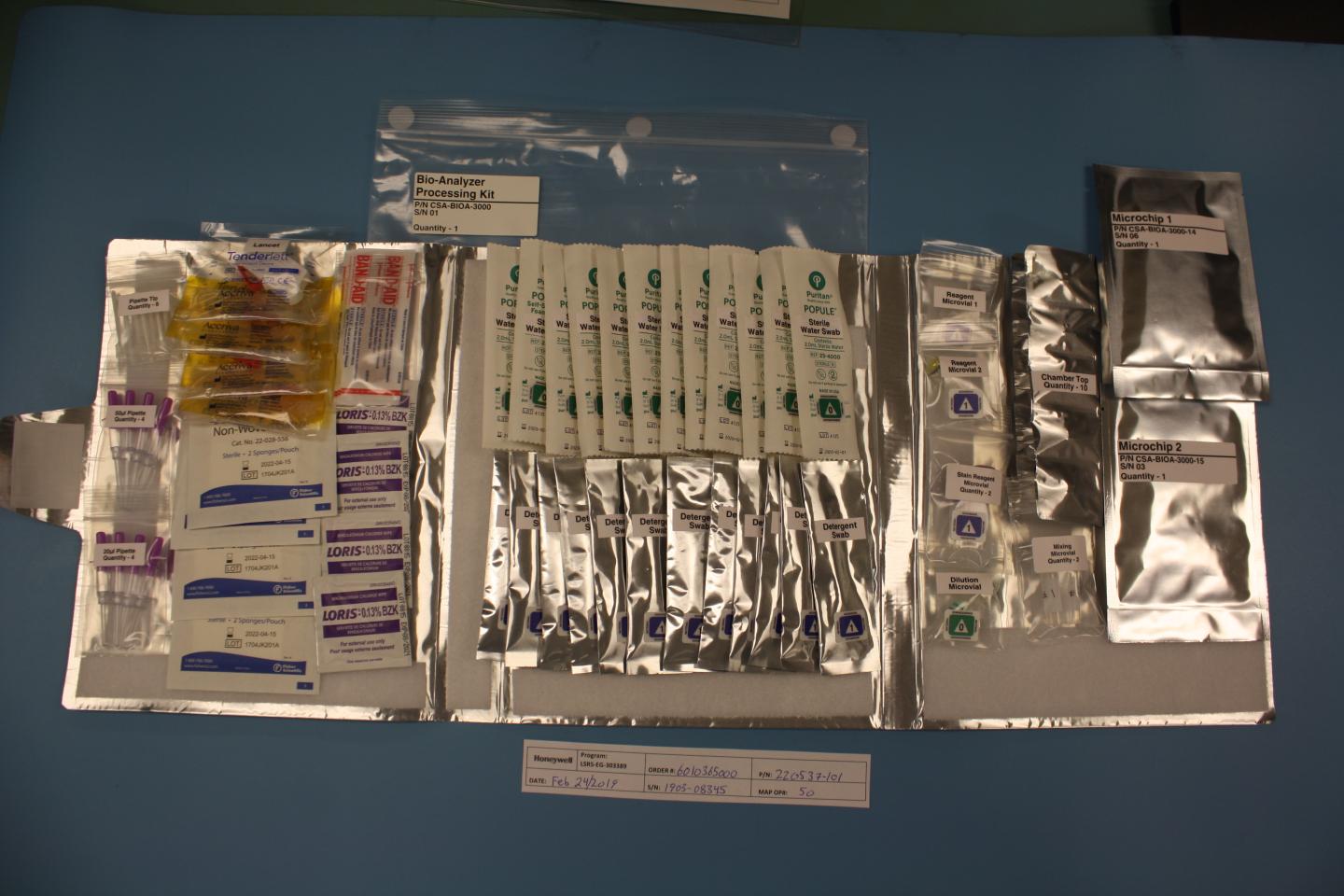The Canadian Space Agency has commissioned an innovative biomedical device for an upcoming space station expedition called the Bio-Analyzer

Credit: Canadian Space Agency
In its role as a unique orbiting laboratory, the International Space Station provides a broad range of equipment for conducting health and life sciences research. However, the equipment available for cellular and molecular biology is limited compared to capabilities found in laboratories on Earth. To address this limitation, the Canadian Space Agency (CSA) commissioned an innovative biomedical device for an upcoming space station expedition. The videogame console-sized Bio-Analyzer enables near real time, onboard analysis using freshly collected biological samples such as blood, urine, saliva, sweat, and cell cultures.
The device is designed to perform two types of analysis. It is capable of counting cells and detecting and quantifying biomarkers. The word “biomarker” refers to any molecules (such as proteins) found in the blood samples that can be measured to assess overall health. Biomarker analysis is a group of tests that look for these molecular signs of health. In terms of cell counting, the device can count different blood cell types from the same sample. Overall, the data generated by the Bio-Analyzer could someday help produce a complete blood count, a test used to determine a patient’s overall health.
The blood collection method, a finger prick to obtain less than 1 milliliter of blood per sample, is less complex and time-consuming than current space station collection methods, consisting of blood draws into tubes, as in Earth-based clinics. Additionally, sample preparation is semi-automated, requiring less crew time.
The Bio-Analyzer also provides automated data transfer to the ground, making the data available much sooner than when the samples must be frozen and returned to the ground, as is currently the case. Biomarker detection takes approximately three hours, followed by electronic analysis of the sample with immediate availability of results. Cell counting takes approximately four minutes, and this data becomes immediately available as well. Delivery of analysis results shortly after the sample is loaded provides the opportunity for near real time medical diagnostics.
“The ability to rapidly collect and analyze cells will reduce the requirement for sample return,” said Principal Investigator Luchino Cohen. “We can avoid the steps of collecting samples in tubes, keeping them in cold stowage, delivering them on a returning vehicle, and then analyzing them on the ground. This rapid analysis will accelerate scientific data collection.”
This new diagnostic tool could help test the efficacy of specific countermeasures that are key to current and future exploration missions to the Moon, Mars and beyond. For example, to test the effectiveness of countermeasures used for reducing bone loss, it should be possible to perform regular tests on crewmember blood to quantify biomarkers of blood degradation, an indicator of bone health.
The Bio-Analyzer can provide Earth-based benefits as well, such as improving point-of-care diagnostics. “This has great potential for continuous monitoring of patients here on the ground,” said Cohen. “Patients won’t need to go to the clinic or wait days for blood analysis results. That’s the future of medical diagnostics on Earth,” he added.
Once the Bio-Analyzer system is fully functional on the space station and has successfully demonstrated its capabilities in microgravity, scientists plan to use it for future space station research, such as in the CSA-sponsored Immuno Profile investigation. For each investigation, companies tune specific tests to satisfy the requirements of each investigator. The CSA currently plans six years of Bio-Analyzer space station utilization.
###
Media Contact
Carrie Gilder
[email protected]
Original Source
http://www.




